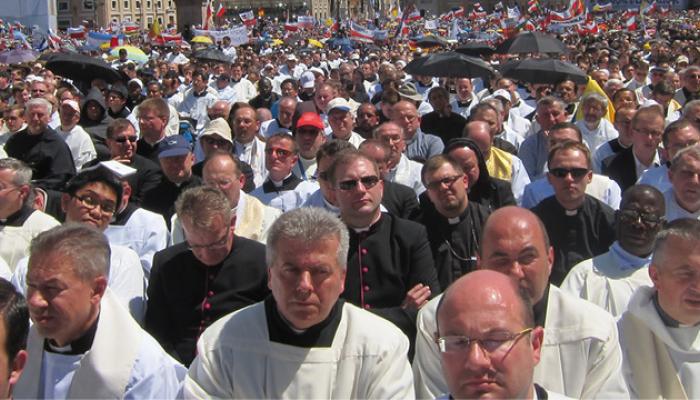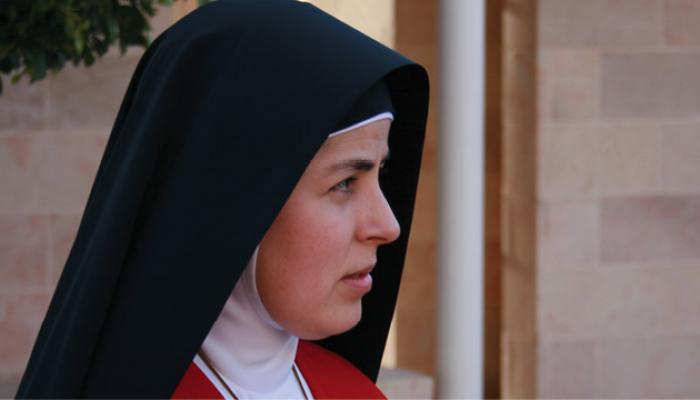
2.5 Що таке Римська курія?
Теоретично Папа є абсолютним монархом, який керує Церквою, але на практиці йому допомагають різні «міністерства», які разом утворюють Римську курію. Державний секретаріат займається внутрішніми (церковними) справами та зовнішніми відносинами. Конгрегації та папські ради відповідають за такі питання як канонізація та беатифікація, католицька освіта, єпископство та миряни.
Одним із трьох трибуналів є Римська рота, центральний суд Церкви. Секретаріат економіки керує економічною діяльністю Святого Престолу та держави Ватикан. Кінцева мета всіх цих організацій – сприяти Церкві роз’яснювати та проголошувати Євангеліє і допомагати віруючим.
Why did Christ institute an ecclesiastical hierarchy?
Christ instituted an ecclesiastical hierarchy with the mission of feeding the people of God in his name and for this purpose gave it authority. The hierarchy is formed of sacred ministers,; bishops, priests, and deacons. Thanks to the sacrament of Orders, bishops and priests act in the exercise of their ministry in the name and person of Christ the Head. Deacons minister to the people of God in the diakonia (service) of word, liturgy, and charity. [CCCC 179]
How is the collegial dimension of Church ministry carried out?
After the example of the twelve Apostles who were chosen and sent out together by Christ, the unity of the Church’s hierarchy is at the service of the communion of all the faithful. Every bishop exercises his ministry as a member of the episcopal college in communion with the pope and shares with him in the care of the universal Church. Priests exercise their ministry in the presbyterate of the local Church in communion with their own bishop and under his direction. [CCCC 180]
Why does ecclesial ministry also have a personal character?
Ecclesial ministry also has a personal character in as much as each minister, in virtue of the sacrament of Holy Orders, is responsible before Christ who called him personally and conferred on him his mission. [CCCC 181]
Why is the Church not a democratic organization?
Democracy operates on the principle that all power comes from the people. In the Church, however, all power comes from Christ. That is why the Church has a hierarchical structure. At the same time, however, Christ gave her a collegial structure as well.
The hierarchical element in the Church consists in the fact that Christ himself is the one who acts in the Church when ordained ministers, by God’s grace, do or give something that they could not do or give by themselves, in other words, when they administer the sacraments in Christ’s place and teach with his authority. The collegial element in the Church consists in the fact that Christ entrusted the entire faith to a group of twelve apostles, whose successors govern the Church, with the pope, the Petrine ministry presiding. Given this collegial approach, councils are an indispensable part of the Church. Yet even in other administrative bodies of the Church, in synods and councils, the manifold gifts of the spirit and the universality of the Church throughout the world can be fruitful. [Youcat 140]
[Це] дві прикмети куріального чиновника, а тим більше — куріального начальника, які я хотів би підкреслити: професіоналізм і служіння. Професіоналізм, під яким я маю на увазі компетентність, навчання, перебування в курсі справ... Другою ознакою є служіння: служіння Папі та єпископам, Вселенській Церкві та окремим Церквам. У Римській курії людина навчається — особливим чином «вдихає» — цього подвійного аспекту Церкви, цієї взаємодії загального та особливого. [Папа Франциск, до Римської курії, 21 грудня 2013 р.]





